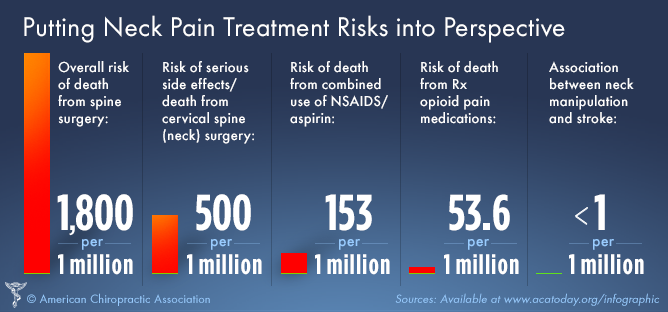Are Chiropractic Adjustments Compulsive? Distinguishing Fact From Fallacy
Are Chiropractic Adjustments Compulsive? Distinguishing Fact From Fallacy
Blog Article
Written By-Svane Hardin
You might have heard that chiropractic adjustments can cause an addictive dependence, yet that's an usual mistaken belief. Numerous clients discover relief without creating any type of form of dependency. It is essential to comprehend truth function of these changes and exactly how they match your general health method. So, exactly what does the science say about chiropractic treatment and your health? Allow' visit the up coming webpage out the realities.
Recognizing Chiropractic Adjustments and Their Objective
When you consider chiropractic care changes, it's important to recognize their function and exactly how they work. These adjustments aim to remedy misalignments in your back and joints, advertising much better positioning and motion. By applying controlled pressure to particular locations, chiropractors help alleviate pain, enhance function, and boost your overall health.
Chiropractic care focuses on your body's capacity to recover itself, stressing the connection between the spinal column and the nervous system. When your spine is aligned, it can reduce nerve disturbance, enabling your body to work efficiently.
Regular modifications might likewise help prevent future issues, keeping you active and pain-free. Eventually, chiropractic adjustments offer to sustain your wellness, boost wheelchair, and improve your lifestyle.
Common Myths About Addiction and Chiropractic Treatment
Many individuals hold misunderstandings about the partnership between chiropractic treatment and dependency treatment. One usual misconception is that chiropractic care adjustments produce an addiction-like reliance. In truth, lots of people locate relief from discomfort and discomfort, but this doesn't mean they develop a psychological or physical dependency.
One more myth is that chiropractic doctors are just trying to maintain you coming back for more modifications. Most chiropractors prioritize your health and aim for lasting health and wellness instead of frequent sees.
Furthermore, some believe chiropractic care can change conventional dependency treatments, but it ought to enhance, not replace, evidence-based therapies. Recognizing these myths can help you make informed selections regarding your health and wellness without dropping prey to misinformation.
The Scientific Research Behind Chiropractic Care Adjustments and Client Experience
While some might examine the efficiency of chiropractic modifications, a growing body of research study supports their duty in alleviating pain and enhancing general feature.
Researches suggest that back manipulation can reduce discomfort from problems like reduced neck and back pain, tension headaches, and neck pain. When you undergo chiropractic treatment, the modifications intend to bring back correct positioning, boosting your body's natural healing capacities.
Numerous people report raised wheelchair and a higher sense of well-being after treatment. Additionally, the healing partnership you construct with your chiropractor can boost your experience, as they provide tailored care tailored to your needs.
https://whatdochiropractorsdo95173.bloggosite.com/42629065/the-contribution-of-chiropractic-interventions-to-chronic-discomfort-management of scientific support and positive person experiences assists clarify why chiropractic care modifications work for several individuals seeking alleviation.
Final thought
To conclude, chiropractic adjustments aren't addictive; they're made to improve your well-being and promote aggressive health maintenance. By disproving the misconceptions bordering reliance, it's clear that these therapies can supply substantial relief without producing a cycle of dependency. Embracing chiropractic care as a complementary technique to conventional therapies can bring about far better health outcomes. So, if medication for back pain considering modifications, felt confident that they're about enhancing your quality of life, not developing a dependence.
